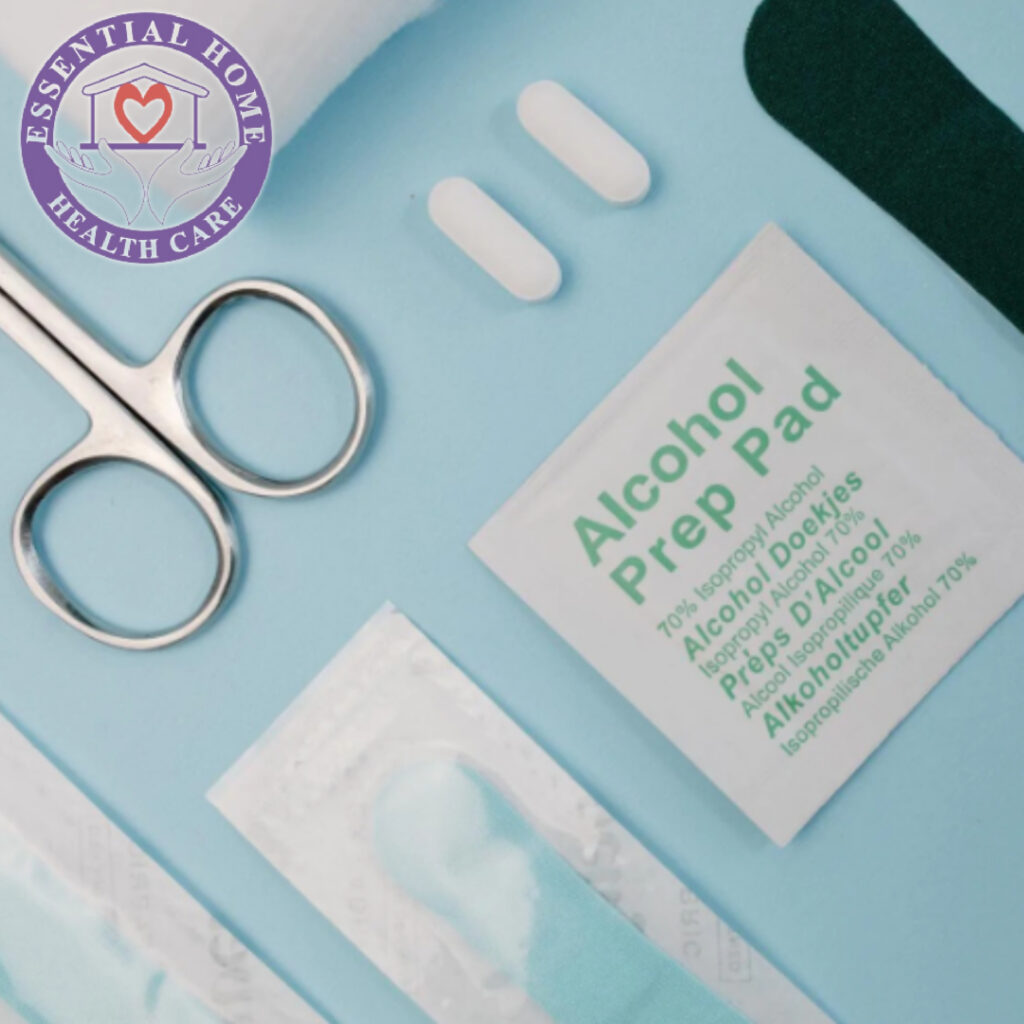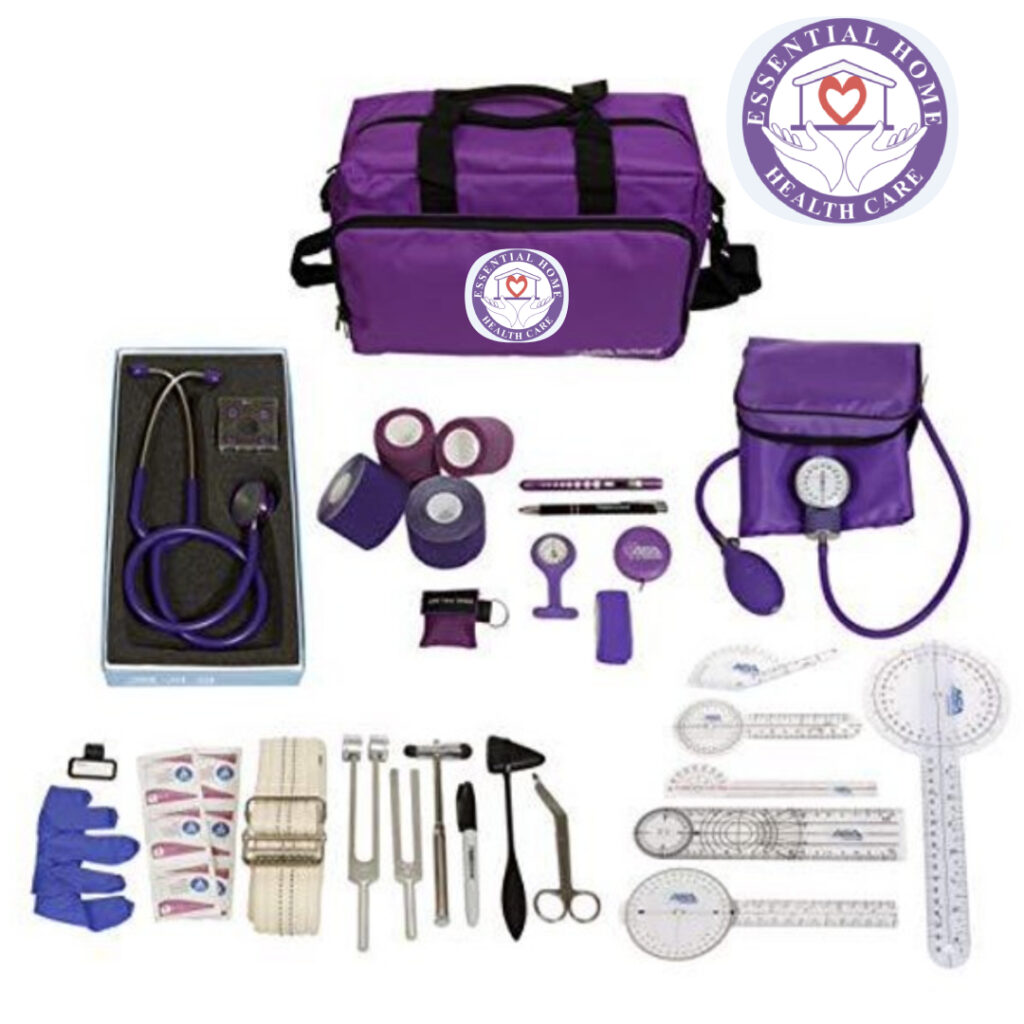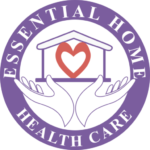Due to their therapeutic or diagnostic properties, home health agency personnel need medical supplies to make home visits or administer the physician’s prescribed therapy or diagnosis. What Supplies Are Needed For Home Health Care? Call (847) 813-6301 right now to find out.

Caregivers must be ready for everything. Emergency bags should be carried by caregivers. Unexpected occurrences and obligations may require greater aid for family carers.
Families seeking a Chicago home caregiver should contact Home Care Assistance. Our hourly and live-in caregivers receive constant training to provide elders with high-quality in-home care.
There are two types of supplies. They are:
- Routine supplies – Patients rarely use them at home. These materials are provided for home care services.
- Nonroutine supplies (NRS) – are those prescribed by the doctor to address a patient’s condition.
Simple Home Medical Supplies
By purchasing ahead for medical supplies, you can save money and avoid unnecessary trips to specialists. In a rush or unprepared, consumers sometimes overpay for home medical supplies.
A first-aid kit is essential if you purchase medical equipment and home health supplies for your patient. In addition to these basic medical kits, there are numerous additional critical items:
- Adhesive tape
- Finger splints made of aluminum
- Antibiotic ointment
- Towels and antiseptic solution
- Bandage strips and bandages of assorted sizes
- Cotton swabs and cotton balls
- Non-latex disposable gloves
- Solution for eyewash
- First-aid guide
- Sanitizer for the hands
- Peroxide of hydrogen
- Instant ice packs
- Plastic bags, petroleum jelly, or lubricant
- Assorted sizes of safety pins
- Tweezers and scissors
- Saline sterile
- Superglue
- spoon, syringe, or medicine cup
- Thermometer
- Turkey baster (for wound flushing)
For quick treatment, keep OTC medications in your first-aid kit. OTC medications include aspirin, aloe vera gel, anti-diarrhea medicine, calamine lotion, antacids, antihistamines, cough medicines, and laxatives.
Add over-the-counter painkillers like acetaminophen and ibuprofen. Ibuprofen may worsen respiratory symptoms, and children, hemophiliacs, and blood-thinners should not use aspirin. For medical decisions, we advise consulting the doctor.
Enhanced Home Medical Equipment
If you are caring for a long-term patient, a simple medical kit will not serve to fulfill all of their requests. You or home caregivers may need to buy home hospital goods to care for the patient at home.
Consider the following important pieces of equipment:
- Tympanometer or audiometer
- Autoclaves.
- Automated external defibrillators. Monitor your blood pressure.
- Scales for measuring weight.
- Color-coded biohazard bins and liners. Colposcopes.
- ECG machine and its attachments
- Aspirators, oxygen, and resuscitation masks are examples of emergency medical equipment.
- Tables for exams and procedures
- Lab diagnostic equipment—centrifuges, blood chemistry, glucose, or urine analyzers, a microscope, and a small refrigerator.
- PPE—disposable aprons, eyewear, gloves, face shields, and facemasks.
- The pulse oximeter.
- Containers for sharps.
- SonderCare provides one-of-a-kind home hospital beds.
- Lighting that is unique.
- Spirometers monitor breathing. Containers made of stainless steel.
- Stools on wheels.
- Stethoscopes.

To ensure these things are in good shape, get them from hospital-approved providers. If you don’t have a loading dock, these companies will deliver to your door.
Speak with your healthcare provider for supplier recommendations. Do you want to read recent articles on buying home medical supplies? Browse our most current materials and contact us if you have any questions. Also call us at (847) 813-6301 for more on Is It Necessary For My Health Care Provider To Be Certified for future in-home care services. We’re here to help you on your journey to home medical care.
